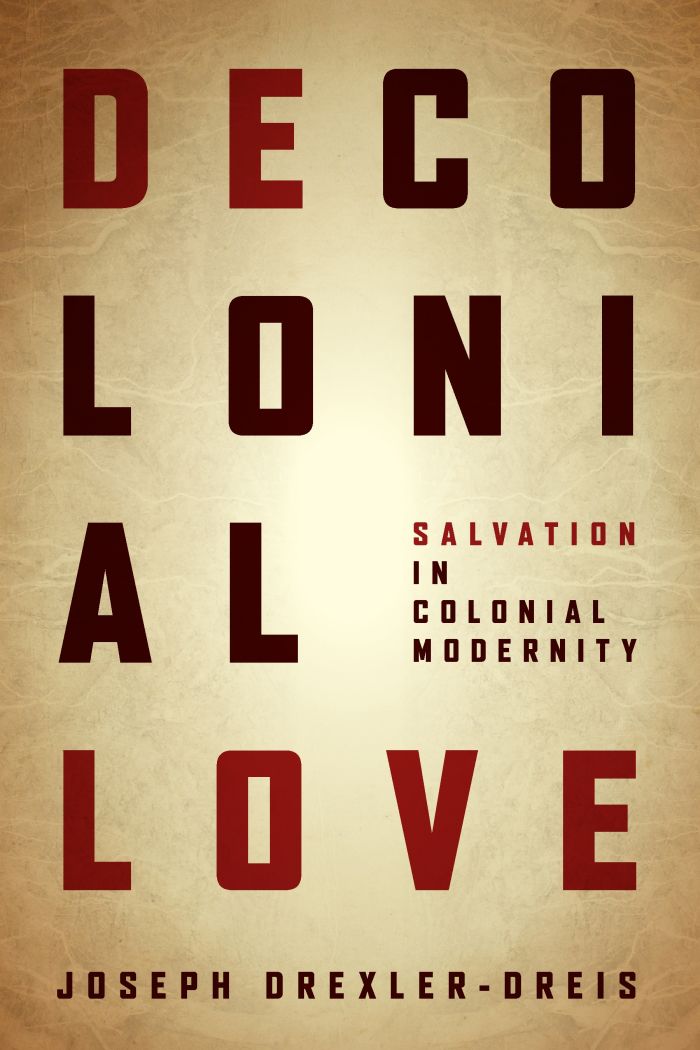Decolonial Love
Salvation in Colonial Modernity

This book can be opened with

Bringing together theologies of liberation and decolonial thought, Decolonial Love interrogates colonial frameworks that shape Christian thought and legitimize structures of oppression and violence within Western modernity. In response to the historical situation of colonial modernity, the book offers a decolonial mode of theological reflection and names a historical instance of salvation that stands in conflict with Western modernity. Seeking a new starting point for theological reflection and praxis, Joseph Drexler-Dreis turns to the work of Frantz Fanon and James Baldwin. Rejecting a politics of inclusion into the modern world-system, Fanon and Baldwin engage reality from commitments that Drexler-Dreis describes as orientations of decolonial love. These orientations expose the idolatry of Western modernity, situate the human person in relation to a reality that exceeds modern/colonial significations, and catalyze and authenticate historical movement in conflict with the modern world-system. The orientations of decolonial love in the work of Fanon and Baldwin—whose work is often perceived as violent from the perspective of Western modernity—inform theological commitments and reflection, and particularly the theological image of salvation.
Decolonial Love offers to theologians a foothold within the modern/colonial context from which to commit to the sacred and, from a historical encounter with the divine mystery, face up to and take responsibility for the legacies of colonial domination and violence within a struggle to transform reality.
Decolonial Love pushes forward the crucially important engagement of Christian theology with decolonial thought. Clear and thoughtful, synthetic and constructive, attentive to scholarly convention as well as to marginalized voices, this book introduces theologians to state-of-the-art theory from the Global South. It also shows how secular theorists of coloniality, liberation theologians, and the inimitable James Baldwin are all part of a shared conversation, interrogating idolatry and striving for revolutionary salvation.—Vincent W. Lloyd, Villanova University
In a world where we are told that competition is the way to go, that success is the goal, that more is better and that salvation depends on the market, love has become an institutional commodity. Decolonial Love invites us to de-link from these orthodoxies of Western modernity and to re-link with communal horizons of healing colonial wounds and with the liberating potential of decolonial/theological salvation.—Walter Mignolo, co-author with Catherine Walsh of On Decoloniality: Concepts, Analytics, Praxis
Introduction: What Is Decolonial Love? 1
Part I: Christian Theology in the Networks of Colonial Modernity
1. Colonial Modernity as a Historical Context 17
2. The Entanglement of Christian Theology and the Coloniality of Power: The Possibilities of a Response 31
3. Decolonial Openings in Theologies of Liberation 49
Part II: Decolonial Love
4. Frantz Fanon’s Decolonial Love: A New Humanism in Historical Struggle 73
5. James Baldwin’s Decolonial Love: Uncovering the Revelation of the Beat 100
Part III: Theological Reflection as a Decolonial Option
6. The Theological Pedagogy of Frantz Fanon and James Baldwin 119
7. Decolonizing Salvation 135
Conclusion: Sharpening Decolonial Options in the Present Moment 159
Acknowledgments 163
Notes 167
Bibliography 201
Index 211

